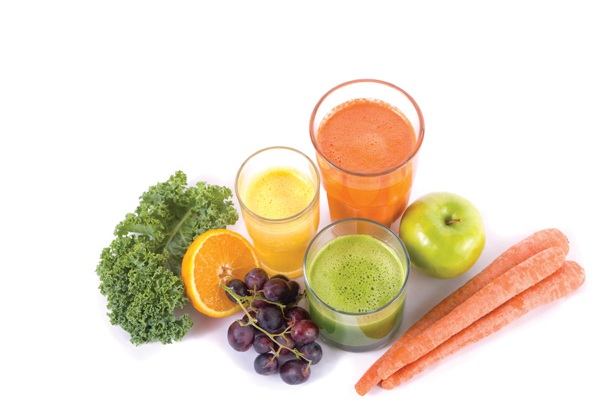Nutrition advice with CNM’s Jacquie Lane
Your queries about natural health answered by Jacquie Lane from the College of Naturopathic Medicine
Dear Jacquie
I’m really interested in juicing but don’t know where to start. Also, is it good for you?
A.L, East Grinstead
Due to the vast concentration of nutrients, juicing can be amazing for us. Use juicing as an additional tool in your daily diet and it can certainly be better than taking a lot of cheap supplements. Things to remember are to use organic where possible, thoroughly wash the fruit and vegetables beforehand and peel those that need it. It’s also a good way of using up vegetable boxes if you get them delivered from farmers’ markets direct each week and run out of cooking ideas.
You’ll need a good juicer, either a centrifugal or masticating type. A centrifugal juicer is relatively inexpensive and a good starting point to get into juicing. They work by separating the pulp from the juice by centrifugal force. The masticating types work by mashing the fruit and vegetables and pushing them through a fine mesh so you get more juice and as a result, are a more expensive type of machine.

A couple of my favourites are:
Berry Beet Blast – rich in potassium, vitamin C and antioxidants. You will need:
•125g blueberries
•125g raspberries
•125g strawberries
• 1 peeled beetroot
Glorious Green Goo – rich in iron and folic acid, betacarotene and vitamin C. You will need:
• A handful of watercress
• 225g spinach
• 25g parsley
• 2 carrots
• ¼ of a cucumber
• 1 kiwi (providing vitamin C which helps the body absorb the iron)
• 1 teaspoon powdered spirulina or Blue green algae
The great thing about juicing is that you can also add any other liquids or powders you may be taking such as flax oil or fish oils. You can also boost the nutrient quantity by adding powders such as spirulina and chlorella or blue green algae. Algae can be very beneficial for people in need of a concentrated energy and nutrient lift – when added to a glass of freshly prepared juice, mix well and drink immediately while the enzymes are still active.
A nutritional therapist can help you put together some specific recipes for you and your family.
See your health professional for advice.
Jacquie Lane is a lecturer at the College of Naturopathic Medicine (CNM) and the Director of Studies at CNM in Brighton. Jacquie
also runs her own nutrition clinic in Brighton and manages a biological testing lab specialising in digestive issues.
Email Jacquie Lane: sunshinenutrition@hotmail.co.uk
CNM open evening
If you would like to train to become a nutritional therapist,
please book to attend CNM’s next open evening in Brighton.
Call 01342 410505 or visit www.naturopathy-uk.com




















